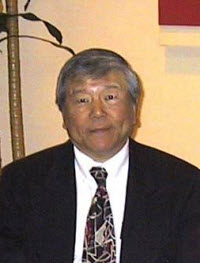Diagnosing and Treating Acute Bacterial Rhinosinusitis: New Guidelines from the Infectious Diseases Society of America
Posted on by
Author – Dr. Anthony W. Chow, MD.
University of British Columbia and Vancouver Hospital
Sinus infections cause inflammation of both the sinuses and nasal cavity. The infections can sometimes last for weeks and can be very uncomfortable. They are quite common – in fact, nearly one in seven adults are diagnosed with a sinus infection each year.
My coauthors and I developed the Infectious Diseases Society of America (IDSA)’s Clinical Practice Guideline for Acute Bacterial Rhinosinusitis in Children and Adults to help physicians make sense of how to best diagnose and treat rhinosinusitis.
Our goals for the guideline are to inform physicians regarding the appropriate diagnosis and management of rhinosinusitis and to reduce inappropriate and unnecessary use of antibiotics. Inappropriate use can cause harm by fostering antibiotic resistance, unnecessarily exposing patients to drug side effects and adding cost.
During our extensive review of the existing evidence on the topic, we found that the vast majority of sinus infections – 90% to 98% – are caused by viruses. This means that antibiotics are not effective in treating most cases of rhinosinusitis. And yet, sinus infections are the fifth leading reason for antibiotic prescriptions nationwide.
We provide specific characteristics of the illness to help doctors distinguish bacterial from viral sinus infections, and provide guidance on which antibiotics are best for appropriate and effective treatment. If symptoms last for 10 days without improvement, or include fever of 102 degrees or higher with nasal discharge and facial pain lasting three to four days, or if symptoms seem to improve after 4 to 7 days only to worsen again, the infection is likely bacterial and should be treated with antibiotics.
The guidelines advise against the current standard of care, amoxicillin, and instead recommend using amoxicillin-clavulanate for treatment if a bacterial infection is suspected. The addition of clavulanate helps to overcome resistance by inhibiting an enzyme that breaks down the antibiotic. This recommendation is a departure from previous rhinosinusitis guidelines, but was made to address antibiotic resistance and reflect the increased use of pneumococcal vaccines, which have changed the pattern of bacteria that cause sinus infections.
Read the full-text “IDSA Clinical Practice Guideline for Acute Bacterial Rhinosinusitis in Children and Adults online at http://cid.oxfordjournals.org/content/54/8/1041.full.pdf+html or pick up the April 15 issue of Clinical Infectious Diseases.
CDC information about sinus infections can be found at: http://www.cdc.gov/getsmart/antibiotic-use/URI/sinus-infection.html
Symptom relief tips: http://www.cdc.gov/getsmart/antibiotic-use/symptom-relief.html
Dr. Chow is Professor Emeritus and former Head of the Division of Infectious Diseases, Department of Medicine, University of British Columbia (UBC) and Vancouver Hospital. He retired from clinical practice, teaching and administration in July 2006.
Dr. Chow received his MD from the University of Manitoba in 1967. He completed residency training in Internal Medicine in Winnipeg, Manitoba, subspecialty training in Infectious Diseases, and a clinical/research fellowship at Harbor-UCLA, Torrance, CA. He joined UCLA as an Assistant Professor in 1972, rising to the rank of Associate Professor in 1977. In 1979, he became Professor and founding Head of the Division of Infectious Diseases at UBC and Vancouver Hospital, a position he held until 1993. In 1994, Dr. Chow began a second career in the promotion of translational research, and the development of clinician scientists in Canada. He directed the highly acclaimed MD/PhD Program at UBC, and spearheaded the unique CIHR Strategic Training Program for Translational Research in Infectious Disease (TRID) that actively promoted collaborative research from bench to bedside and population. His own research interests include the role of anaerobic bacteria in health and disease, structure/function of staphylococcal superantigens, and the molecular pathogenesis of staphylococcal toxic shock syndrome. He held a CIHR operating grant continuously since 1978 until his retirement. He has authored over 350 peer-reviewed papers and book chapters and is co-recipient of several US and international patents on the use of the 60 kDa heat shock protein (HSP60) gene sequences as universal targets for infectious disease diagnosis and microbial species identification. He has supervised over 70 postdoctoral clinical and research fellows, and numerous undergraduate summer research and co-operative students as well as Masters and PhD graduate students.
Dr. Chow has been a Fellow of the Infectious Disease Society of America (IDSA) since 1976. He was a member of the Antibiotic Use and Clinical Trials Committee of IDSA (1994-97), and past chair of the Respiratory Tract Infections Subcommittee of the FDA/IDSA Advisory Committee on New Drug Submissions (1988-92). He was a member of the Steering Committee for the Bureau of Infection Control, Health and Welfare Canada, and past Coordinator of the Vancouver and Victoria node of the Canadian Bacterial Diseases Network Centres of Excellence. Since retirement, Dr. Chow has continued to be active in knowledge acquisition and translation of infectious diseases nationally and internationally. He currently serves on the University-Industry Peer Review Committee of the Canadian Institutes of Health Research, and is a consultant to the Therapeutic Products Directorate of Health Canada. He is actively engaged in the development of several clinical practice guidelines for both the Infectious Disease Society of America and the Association of Medical Microbiology and Infectious Diseases of Canada. As well, he serves on the clinical and scientific advisory boards of several pharmaceutical companies for new drug discovery, and the editorial boards of several international journals in infection and immunity.
Posted on by

